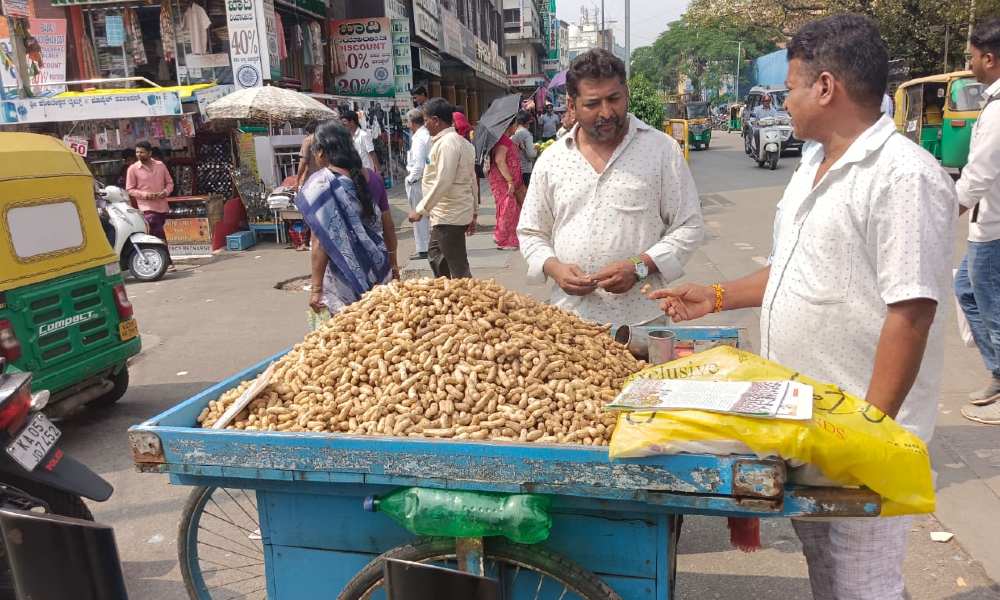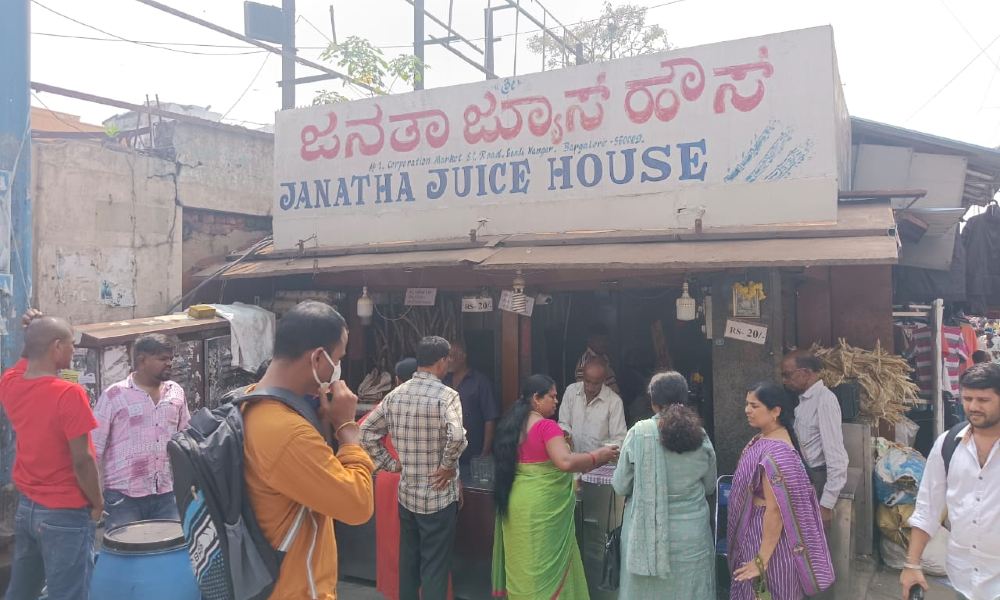Though training agencies have trained more vendors than their target, many have not received training on their rights and responsibilities.
The training program conducted by the Bruhat Bengaluru Mahanagara Palike (BBMP) and the Food Safety and Standards Authority of India (FSSAI) for street food vendors in Bengaluru to promote maintenance of hygiene and train them on their rights and responsibilities has not covered all street food vendors in the city. The organisations trained 10,550 vendors under the program. However, estimates show that the city has around two to three lakh street food vendors.
Abhishek, a juice shop owner at Gandhi Nagar said, “We have not received any training from BBMP.” Manoharan, who runs a food cart at Gandhi Nagar said, “I don’t know anything about the training.” Most street food vendors at Gandhi Nagar had similar statements. Mohammed Javed, president of All India Street Vendors Public and Charitable Trust (AISVPCT), Bengaluru, said that he is not aware of this training program.
The Community Organizer of BBMP West Zone said, “We have completed the training. Each zone was given a target to train 1000 street food vendors.” The BBMP has classified the city into eight zones.
The program was conducted in accordance with the Revised Operational Guidelines for Support to Urban Street Vendors under the Deendayal Antyodaya Yojana – National Urban Livelihoods Mission. It aimed at training the street vendors on “their rights and responsibilities, specific policies or laws related to street vendors, food safety, maintenance of hygiene, waste disposal, etc.” It was completed in 2022.
Rajesh, who received the training said, “The training was really helpful for me. I learnt how to link up with swiggy and zomato.” Kumar, a panipuri seller said, “I got the certificate after the training. It has improved my business.”
Additionally, some vendors are also unaware that they should get their business registered with FSSAI and display that certificate.

A street food vendor who runs a fast-food cart near the City Centre, Gandhi Nagar, was unaware about getting an FSSAI registration. “It is only been two months since the shop opened. I did not know that I should get a registration. I will do it soon,” he said. Most food cart owners at Gandhi Nagar are unaware of the FSSAI registration.
Govindraj, statistical officer, FSSAI, Bengaluru Urban District said, “Most vendors are not aware of the registration process. When we go for inspections, we ask them to register under the FSSAI.”
In the Annual Public Laboratory Testing Report of Enforcement Sample, conducted by FSSAI in 2021-22, out of the 5844 samples analysed in Karnataka, 150 were found to be non-conforming.
According to the Standard Operating Procedure (SOP) for Modernization of Food Streets issued by the FSSAI, “Registration is meant for petty food manufacturers that includes petty retailer, hawker, itinerant vendor or a temporary stall holder or small or cottage scale industry having annual turnover up to Rs. 12 lakhs. The SOP also mandates the display of the registration certificate “at a prominent place at all times within the premises or vehicle or cart or any other place where the person carries on sale/manufacture of food in case of Petty Food Business.”
However, most vendors do not follow this. Abhishek said, “We keep the registration certificate at home. Nobody asks for it. If it is kept here, there are high chances that it will get destroyed due to water or other food materials used here.” The owner of Janatha Juice House also had the same opinion.
Dr. Priya. T. Nandimath, public health expert, said, “All food vendors should have an FSSAI registration. Otherwise, hygiene, quality and standards will be compromised.” She said that awareness is must, as many of the street food vendors don’t even know that they should get a registration. She also added that the process should be simplified so that everyone can do it.
Architect and Urban Designer, Vikram Bhat, said, “Street food vendors should comply with FSSAI regulations which make sure that the food served is hygienic. If the food served is unhygienic it can lead to outbreak of diseases.” He added, “Training programs are of utmost requirement as it caters to the well-being of consumers by regulating hygiene standards.”




